Morocco Construction Activities: Construction & Housing in Morocco
Mohamed Zahid, General Manager of Menara Holding
Morocco has a huge housing deficit which by no means applies to the luxury sector.
Interview with Mohamed Zahid, General Manager of Menara Holding
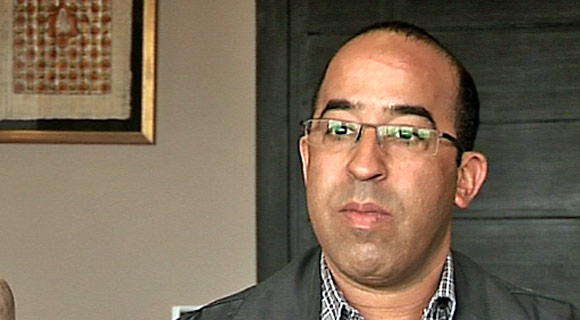
The crisis impacted various sectors of industry. Are you still affected by the crisis or are you starting to feel the effects of recovery? Where does the group stand?
First of all, for those interested in Morocco’s economy, it is important to mention that the core businesses of Menara Group are in the freight transport sector, as well as the public buildings and works sector.
This means that the automotive and real estate activities are in synergy with the core businesses of the group. Menara Holding, being located in Marrakech, closely observed the evolution of the economic crisis that hit Morocco for two reasons, the first of them being our interest in the real estate, which had already fired an initial crisis parallel to that which affected the whole world and Morocco in particular.
Morocco has a huge housing deficit which by no means applies to the luxury sector.
Secondly, of course, real estate is in direct connection with the construction industry, hence with our companies in the construction area whose activities include quarrying, the crushing of the raw material and the production of prefab. These two synergetic activities directly affect the businesses, which in their turn share a close relationship with the property developers. Therefore, the crisis had a serious impact on us.
Let us present the group in more detail. What are its key advantages and also what sectors does it cover?
Menara Group is a local family, multidisciplinary group of Marrakech. Multidisciplinary because Menara is active in five different industries. The first and most important is of course the public buildings and works sector: we produce building materials, including raw material ranging from sand and gravel to concrete blocks, glue and all kinds of different products that are related to the sector.
It is the primary activity of the group. We also deal in transport, a secondary activity in terms of turnover, after construction. We started transport in 1976 and public works in 1989. 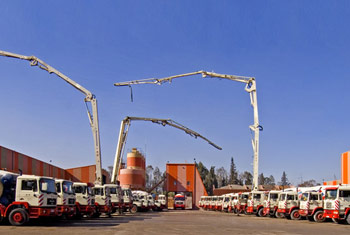
Real estate is our third area of activity. We started our activity as real estate developers about four or five years ago, our goal being to meet the increasing demand in Morocco for public and mid-range housing, because it is there, rather than in the luxury sector, that the higher deficit is being recorded. Our strategy is to target developing or high potential regions that present huge housing deficits.
Fourth, in the automotive sector, an area sure to become one of the core activities of our group in the coming years. The group sell spare parts for various car and truck brands and produce electric vehicles and motorized tricycles. To this day, we are the sole and unique producer of tricycles and electric vehicles in Morocco or Africa, since owning models and our own brand labeled “Made in Morocco”, whereas the other countries in the area only deal in assembly.
The last sector is comprised of various activities and acts as an incubator for future ideas where we test projects that are not necessarily part of our core business. For instance, we hold the master franchise of a ready-to-wear brand, we work in senior citizen housing and we try to integrate recreational areas into service stations.
How do you evaluate the construction sector in 2010 and what are the prospects for 2011? What are the biggest challenges for the construction industry in Morocco and Marrakesh in particular?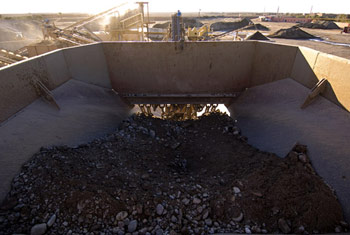
We are very optimistic. There is a project in development that the King made public concerning the economic survey covering all regions of Morocco: the kingdom will be divided into economic regions and the government is to study how each region can become self-reliant. We can join this direction by further developing our core activities, that is construction and transport, and spreading through almost all regions of Morocco. This resonates with our plan for 2010-2015 in which we envision growing into a leading company not only regionally, but also nationally.
The sector has indeed suffered from the crisis. It was particularly felt after Morocco had had a real estate boom in the luxury range, which stemmed from a newly gained appetite for luxury-life caused by an international movement, as most of the projects in Morocco and especially in Marrakech were intended for a foreign clientele.
Construction companies and property developers had to grow quickly to meet the increasing demand and when they finally managed to live up to those ambitions, the crisis struck. So everyone had to adjust: the companies that survived in construction were those that were well organized, whereas in real estate it was those that continued to offer the best quality-price ratio.
But the crisis for us was in a way beneficial, as it somehow balanced the market and raised the property value in the region. I am convinced that the biggest market right now is in the public and mid-range housing. Morocco has a huge housing deficit which by no means applies to the luxury sector.
This is due to several factors, starting with the fact that Morocco is a young country: the average age of Moroccans is below the lowest age average of any European country. Furthermore, people have easier access to credit, whereas a decade ago this was virtually impossible for most of the population. Morocco also underwent social reforms that have allowed people to advance in their careers and get better wages. The empowerment of women has resulted in both members of the couple working. All these factors translate in a need for housing for young couples, but at the same time, property developers are forced to provide good quality housing because the cultural level of Moroccans has increased, thus making them more demanding and dismissive of mediocrity. 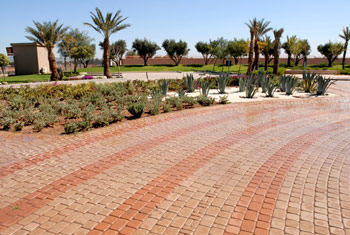
In conclusion, I think this is the trend for the years to come and it is this market that will allow our activities in construction and the public works sector to grow and continue to evolve in the future.
One reason for the royal initiative to regionalize the kingdom in economic terms is to push the construction industry from the large cities to smaller areas where there is a high demand for housing. The reason I am mentioning it is that business men are willing to invest in areas that are not as well-known as Marrakech, Rabat or Casablanca. We must develop housing as well as the country’s economy.
Morocco is a huge construction site. People must be able to accommodate and find work in their own cities without having to move to more developed areas. And the regionalization concept will certainly help boost the national economy by developing all the regions of the country, thus creating a beneficial balance between them.
Do you also have an international strategy?
Our group has acquired a know-how of our core activity that is readily exportable. We have a fairly precise international strategy, especially for Africa. I see Africa as the future of the world and Morocco has a strategic position that allows it to act as a gateway between Europe and Africa.
Our goal, however, is not limited to construction activities within African countries, but also to be able, in the near future, to export to the north. The sector that interests us the most is the automotive sector. Through our subsidiary that produces vehicles and motorized tricycles, we are now in a phase of upgrading our vehicles to conform to the European CE mark, because we plan to meet the European demand for this type of vehicle. 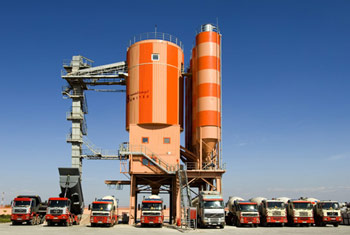
In Europe everything tends to be reduced: given the issues of pollution and the preservation of our environment, distribution networks are compressed to local, smaller radiuses. There is already a large French company that distributes to all major cities via electric vehicles exclusively.
We want to anticipate this demand and aim to provide Europe with the cleanest vehicles possible, with low fuel consumption, low CO2 emissions and even electrically powered in a second phase, so that, in a few years from now, we could offer electric delivery services within smaller areas. We have a development plan for the subsidiary producing electric vehicles and tricycles, which means that in 3-4 years from now we could be exporting vehicles meeting this specific need.
What are your biggest challenges at present and throughout 2011?
From a national perspective, our biggest challenge is to evolve from a Marrakech-based regional company into a national corporation. From an international standpoint, our challenging goal is to start exporting to Africa very soon, because it has a huge potential demand that we can address. Overall, our biggest challenge is to maintain the current course of continuous development.
We want our skills and our companies to keep growing while remaining as transparent as possible. We want our group to project an image of maximum efficiency and transparency. This constitutes a challenge because there are areas where we lack proficiency and we are addressing that by investing in trainings, by following up on the employees’ career paths, which allows our personnel to progress.
As one of the major companies in the region and even in Morocco, what is your take on social reforms?
We believe that Menara Group has done a lot for its employees. Construction companies are not usually sensitive to staff-related social issues, but we wanted to emerge early on as a group that, thanks to its transparency and organization, values human potential. We try to adapt to the general social context by initiatives at the government level, and we are proud to be close to our staff – the basis of our development as a group.
Are you looking for investors in large construction projects? What is your strategy on that?
Investors in large projects like the development of the company manufacturing electric vehicles and tricycles and also in projects like the senior citizen housing are always welcomed.
Regarding the latter, we want to turn it into a kind of hotel service by offering to senior citizens the possibility to rent instead of having to buy. A European senior citizen will find it easier to come here for a fixed period of time, rather to sell his residence in Europe with all the constraints, worries and risks that that implies. The plan is to develop this project nationally, starting with Marrakesh next summer, and to expand to the seaside, to the north, and even to the south.
Morocco is full of sublime landscapes and everything a European clientele of this sort would require: highways, hospitals, airports – Morocco is 2-3 flight hours away from Europe. It is always the goal of Menara to look for partners to expand internationally, because in order to develop industrial projects in Africa, one always needs strong, financially sound and experienced partners to rely on.
An important thing is that Menara Préfa, one of our largest subsidiaries in terms of turnover, is going public. This will bring us closer to imposing ourselves as the country’s leading company in the prefab industry. The idea came last year and hopefully we will be able to put it into practice in late 2012 or early 2013.
What can you tell us of interest regarding the sector comprising various activities?
This sector works as an incubator for various projects: the project of senior citizen housing is part of it. We are also interested in the ready-to-wear industry. We hope to expand that to more than one brand, which is McGregor right now, thus being able to develop a fairly consistent distribution network in the ready-to-wear domain and to turn it into an independent sector of the group.
Would you like to comment on the Marrakech Grand Prix?
We are proud that we were able to live up to the challenging task of organizing the first two editions of the Marrakech Grand Prix. As a sole promoter of the WTCC event whereas no other country has a unique private promoter. We have funded the first and second editions entirely, but unfortunately can no longer continue to do so without government aid.
Where do you see the group in five years from now?
Our vision for 2010-2015 aims for the group to become a leading company at national level. I am very proud of the encouraging results we have reached so far, given the fact that we are a young group that started only recently, in January 2006, and of the mix of internal factors – human resources, transparency and social concern – that turn this group into successful company.
Our main goal in the next five years is
- to grow by focusing on our core activity
- become a group of reference in the industry
- emphasize the social aspects, the corporate transparency and a good internal organization.
- keep the corporate culture for 1200 employees belonging to the Menara family.
We show a great openness, because we believe that family companies such as ours should not limit their development to activities whose sole purpose is profit. It is the main reason that led us to promoting the Marrakech Grand Prix.
We wanted to ensure that Morocco is perceived at a larger scale, not only as a sunny destination with beautiful beaches, luxury hotels and hospitable people. Morocco is also able to organize significant events that demand rigour and precision, while remaining the same warm touristic destination.
We were the sole promoters of the Marrakech World Touring Car Championship for two years and our disappointment related to the lack of outside support is compensated by our pride to have been able to present Morocco in a different light.
I also wanted to congratulate our President, who, during the Marrakech Grand Prix, was decorated by the King in recognition of the group’s efforts in making the event a reality.